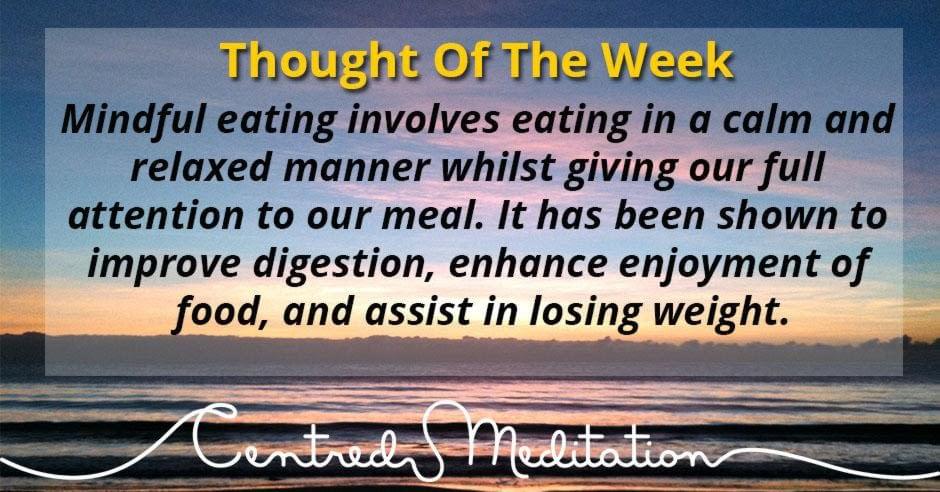This week we have our third workshop in our Mindfulness Workshop Series – ‘Cultivating Actions’ (you don’t need to have come to the others to take this one). Integrating mindfulness techniques into daily life is the perfect complement to meditation. We like to call them ‘freebies’ because it doesn’t cost us any more time and we don’t have to do anything different to what we are already doing. From mindful walking, to mindful working, to mindful listening – they offer us an easy way to amplify the effects of our meditation practice into our day-to-day existence.
We thought we would give you a bit of a taster in this week’s newsletter on mindful eating (on Wednesday you get to actually experience it with a piece of chocolate). ‘Mindful eating’ simply refers to eating with present moment awareness, as opposed to scoffing food down your mouth whilst engrossed in your favourite TV show. Practically speaking, it involves eating in a calm and relaxed fashion and giving your meal your full attention such as noticing the colours, smells, flavours, and textures of your food as you eat.
Is it Really a New Fad?
Although this term has only recently started to embed itself into mainstream vernacular, some elements of mindful eating actually date back to the early 20th century when the likes of Horace Fletcher, an American Dietitian claimed that chewing your food thoroughly would solve all kinds of health problems.
Perhaps Fletcher was way ahead of the game! Thankfully it seems science is finally catching up, with a small yet growing body of research suggesting that he indeed had a point. It is believed that eating while we are distracted may slow down or stop digestion similar to when the fight or flight response is triggered. It’s understood that poor digestion can have a myriad of consequences, but at the very least it means that we are missing out on the full nutritive value of the meal we are consuming. What’s more is that since it takes about 20 minutes for the brain to register that we are full, eating too quickly can result in us finally stopping once we have already too much than we should have.
The science behind Mindful Eating
Digestion is a pretty complex process which involves the activation of the parasympathetic nervous system (the opposite of the fight or flight response of the sympathetic nervous system). This triggers an intricate series of hormonal signals between the gut and the nervous system, such as:
- Salivation, to break down starch in the mouth
- The release of bile from the gallbladder, to break down the fatty acids in the food
- The production of digestive enzymes such as HCL, pepsinogen, and mucus in the stomach, to further break down all the food
- Increased peristalsis, to move the food along the digestive tract and assist in elimination
When we eat while stressed, in a hurry, upset, or distracted, the sympathetic nervous system (fight or flight mode) is activated which subsequently decreases the digestion enhancing parasympathetic activity listed above. In fact, when our fight or flight mode is heightened, the body actually slows down or inhibits the digestive system altogether, because let’s face it, who needs to digest food when running for their lives? This mechanism makes sense when it is a lion we are running from, but not so much when it is simply our boss having a bad day and taking it out on us.
So not only does mindful eating improve our digestion, it has also been shown to heighten our sense of taste, enhance our enjoyment of food, and assist in losing weight.
Here are some tips for eating mindfully:
- Avoid multi-tasking such as watching TV or reading
- Eat with your non-dominant hand
- Stab your food with the end of your fork instead of scooping, use a smaller fork, or eat with chopsticks
- Take small bites
- Chew slowly and plentifully (around 30 times is ideal)
- Swallow one mouthful before reaching for the next
- Eat silently for part of your meal
- Eat until you are just satisfied


